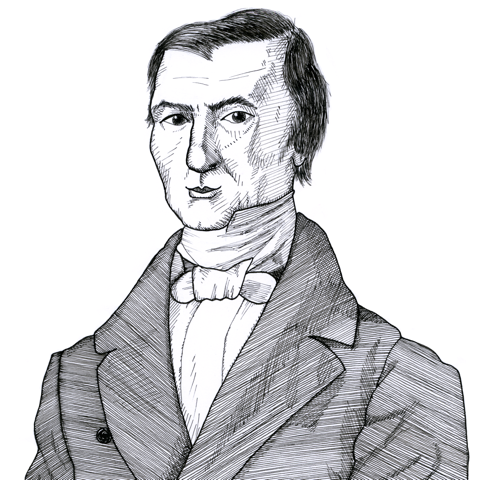
Frédéric Bastiat’s theory of plunder (1850)
The French economist Frédéric Bastiat (1801-1850) developed a theory of plunder in the late 1840s which he defined in the following way:
Free Trade
When a portion of wealth passes from the person who has acquired it, without his consent and without compensation, to someone who has not created it, whether this is by force or fraud, I say that there has been a violation of property rights and that there has been an act of plunder.